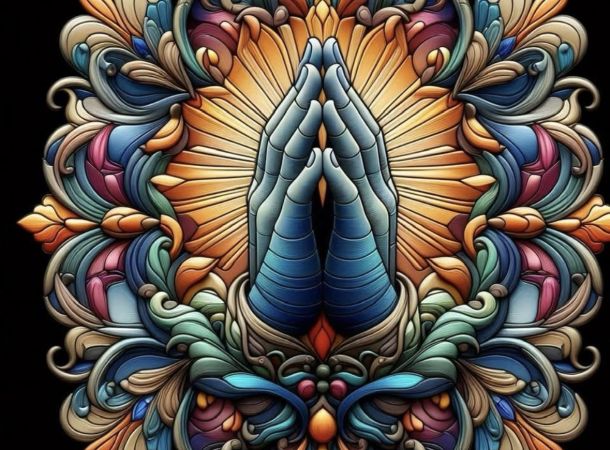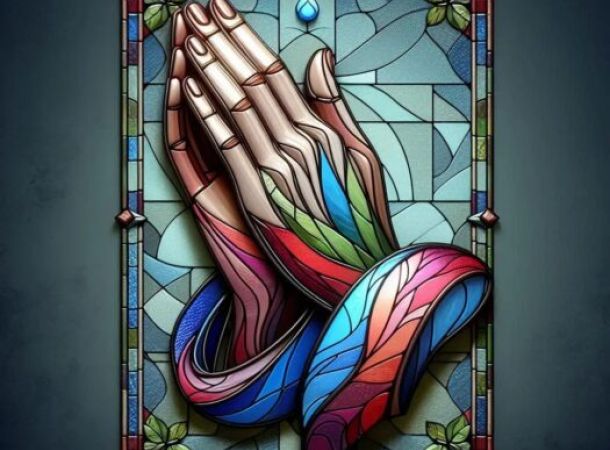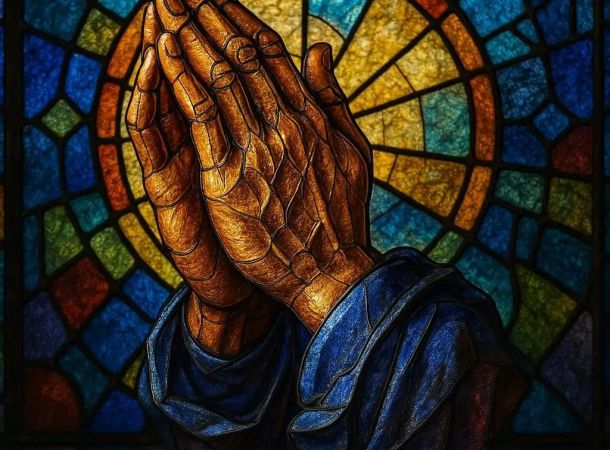Terumah (Heave Offering)
In this Torah Portion, we have what I call a recipe for the Divine Presence to dwell inside of us. Humans are dwellings. We can either be a dwelling of light or darkness, good or evil, pride or humility, love or apathy. There were furnishings or elements that Moses placed inside the tent before the Cloud, symbolic of the Divine Presence, filled it to the brim.
1 Corinthians 3:16: Don’t you know that you are God’s temple (mishkan) and that the Ruach Elohim dwells among (in) you?
The Hebrew word for what is translated as tabernacle, is mishkan, which means a dwelling place.
Exodus 40:34: Then a cloud covered the tabernacle of meeting, and the glory of the Lord filled the tabernacle.
God gave Moses instructions to make the mishkan like the one he saw in the heavenly vision (Heb. 8.5). He placed five major elements inside of it, which the Rabbis believe to resemble the Face of God. In place of the mouth, we have an altar where one in covenant would bring a sacrifice or offering that said, “I am sorry” or “thank you”—a place where repentance and gratitude allowed you to draw near to God. David says in Psalm 51:17, “The sacrifices of God are a broken spirit, a broken and contrite heart.” Psalm 107:22 says, “And let them sacrifice the sacrifices of thanksgiving.” So the altar is likened to our mouth, where praises, gratitude and repentance emerge.
Next, we have an altar of incense to be continually burning in place of the nose. In Revelation 8:4 and Psalm 141:2, we connect the incense to prayer, “Let my prayer be set before You as incense, the lifting up of my hands like as the evening sacrifice.” The Holy Scriptures describe our deeds as garments that can either be dirty and stinky or clean. Imagine how the incense of prayer permeates the heavens so that God does not get infiltrated with the smell of dirty garments.
In place of the eye, if we imagine the Face of God as a mishkan, is the menorah. The menorah is a seven-branched lamp/tree filled with pressed olive oil symbolizing the power of the Holy Spirit. Yeshua is in the Garden of Gethsemane right before his suffering and death. Gethsemane is translated as “olive press” and is a grove of olive trees. This pressing is a chance to overcome. Yeshua overcomes temptation in the wilderness, and in Luke 4:14, He returns in “the power of the Spirit.” We get this pressed olive oil from overcoming temptation and trial. When Yeshua overcomes the pressing that began in the Garden of Gethsemane, he again returns full of the power of the Ruakh Hakodesh, when He rises from the dead. A commandment or mitzvah, in Hebrew, is generally defined as a “good work.” Yeshua says to let your light shine before men, so they may see your GOOD WORKS and glorify your Heavenly Father (Mt. 5.16). This menorah is symbolic of the commandments, fueled with olive oil or victory.
Proverbs 6:23: For the commandment is a lamp, and the law (Torah) a light.
Because I am symmetrical, I figure the other eye should also be a tree. In place of the other eye, we have the Bread of Faces or the Shewbread, to be continually before the Lord. The Bread of Faces is connected to the Bread of Life or the hope of resurrection.
Proverbs 13:12: Hope deferred makes the heart sick. When the desire comes, it is a tree of life.
We must have hope and then feed the hungry-those hungry for the hope of a better life and life everlasting.
In the Holy of Holies, symbolic of the mind/heart, there is the Ark of the Covenant. This Ark housed the ten words, the staff of Aaron, and the manna. The ten words, usually described as commandments, are called devarim in Hebrew, meaning words. Yeshua tells us that words are seeds in the Parable of the Sower in Matthew 13. These ten seeds culminate the commandments. They are the seeds of the Torah, which Proverbs 3:18 calls the Tree of Life. The staff, matte in Hebrew, can mean branch or vine and it has budded. The staff of Aaron, the High Priest and Shepherd of the people, points to Yeshua, the Shepherd of our souls (1 Pet 2.25). It has budded symbolizing Aaron’s authority as the High Priest. We also have manna, the sustenance of the Kingdom of God. The Ark of the Covenant contains seeds, a branch or vine, and sustenance of the Kingdom of God, the essential elements of a Tree-Kingdom, with Yeshua as the main ingredient. He is the Seed, the Vine, and the manna or Bread of Heaven.
If we want the Cloud or Divine Presence to fill us to the brim, we should fill our mishkans with repentance, thanksgiving and praise. There should be a consistent flow of prayers ascending into the Heavens. We should fill our hearts with the commandments which teach us how to overcome trials. There should not be a shortage of hope that sustains us and those around us. We should have a Kingdom focused mind that seeks to spread the Garden to the four corners of the world.
Everything, in essence, was created with an end goal of God dwelling in the midst of His creation.
Exodus 25:8: And let them make Me a sanctuary (mikdash-a holy place) that I may dwell among them.
Taken from ENEME: Understanding Satan From a Hebraic Perspective. Chapter Titled Two Houses.




Leave a Reply